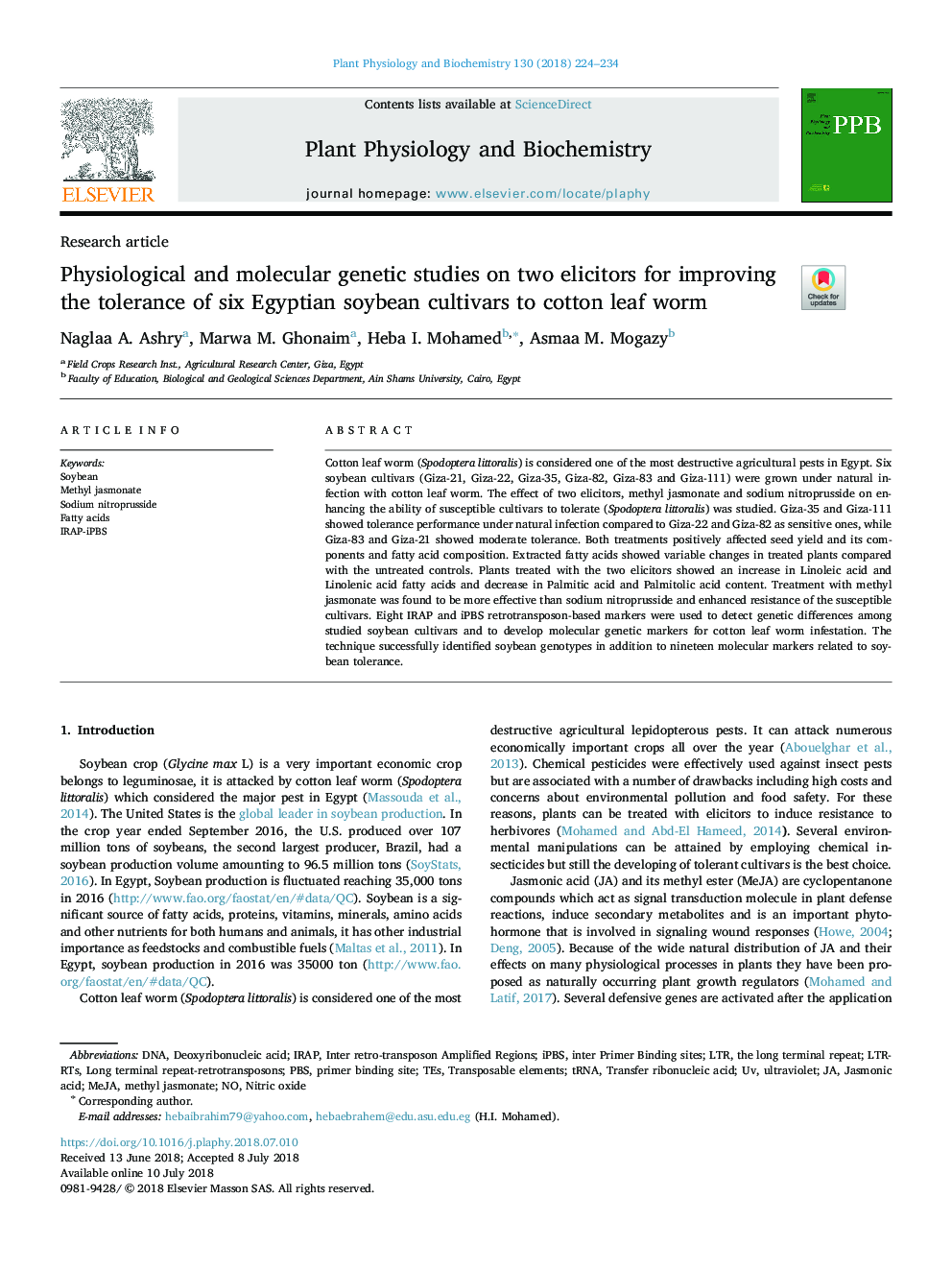| Article ID | Journal | Published Year | Pages | File Type |
|---|---|---|---|---|
| 8352454 | Plant Physiology and Biochemistry | 2018 | 11 Pages |
Abstract
Cotton leaf worm (Spodoptera littoralis) is considered one of the most destructive agricultural pests in Egypt. Six soybean cultivars (Giza-21, Giza-22, Giza-35, Giza-82, Giza-83 and Giza-111) were grown under natural infection with cotton leaf worm. The effect of two elicitors, methyl jasmonate and sodium nitroprusside on enhancing the ability of susceptible cultivars to tolerate (Spodoptera littoralis) was studied. Giza-35 and Giza-111 showed tolerance performance under natural infection compared to Giza-22 and Giza-82 as sensitive ones, while Giza-83 and Giza-21 showed moderate tolerance. Both treatments positively affected seed yield and its components and fatty acid composition. Extracted fatty acids showed variable changes in treated plants compared with the untreated controls. Plants treated with the two elicitors showed an increase in Linoleic acid and Linolenic acid fatty acids and decrease in Palmitic acid and Palmitolic acid content. Treatment with methyl jasmonate was found to be more effective than sodium nitroprusside and enhanced resistance of the susceptible cultivars. Eight IRAP and iPBS retrotransposon-based markers were used to detect genetic differences among studied soybean cultivars and to develop molecular genetic markers for cotton leaf worm infestation. The technique successfully identified soybean genotypes in addition to nineteen molecular markers related to soybean tolerance.
Keywords
Related Topics
Life Sciences
Agricultural and Biological Sciences
Plant Science
Authors
Naglaa A. Ashry, Marwa M. Ghonaim, Heba I. Mohamed, Asmaa M. Mogazy,
